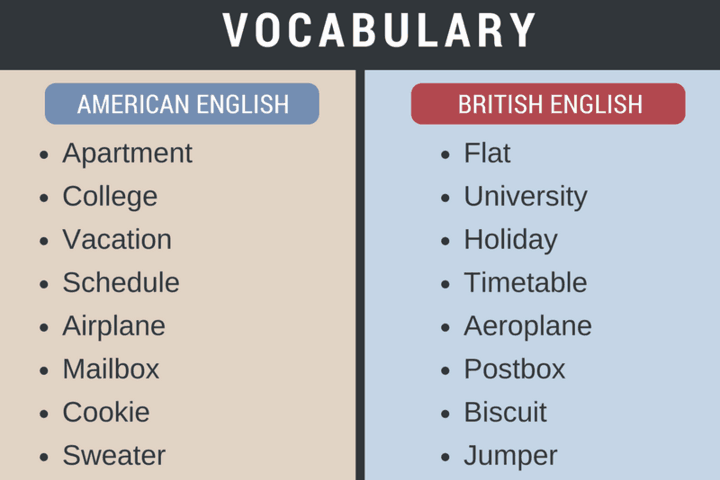As we all know, the Americans and the British speak the same language – English. There are, however, quite a lot of differences in the way people from these countries use English everyday. Now, let’s see how different it is.
Vocabulary
The most noticeable difference between American and British English is probably vocabulary. There are a wide range of everyday words that are different. For example:

Spelling
There are some places in which British and American spelling are different, which is because British English has tended to keep the spelling of words it has absorbed from other languages (e.g. French), while American English has adapted the spelling to reflect the way that the words actually sound when they’re spoken. Here are some examples showing the differences between British and American spelling.

A quick tip: If you want to learn more about the daily conversation in American English and British English, eJOY Epic is a great app for learning English with step-by-step courses generated from authentic videos. You can easily learn and remember not only the common words but also the phrases and expressions that natives use every day.

Learn English with eJOY Epic now
Past tense verbs
You will also find some small differences with past forms of irregular verbs. Americans tend to use the –ed ending; Brits tend to use the -t ending. The past tense of “learn” in American English is “learned”. British English has the option of “learned” or “learnt”.
 Collective nouns
Collective nouns
In American English, collective nouns are singular. For example, staff refers to a group of employees; band refers to a group of musicians; team refers to a group of athletes. Americans would say, “The band is playing guitar very well.”
But in British English, collective nouns can be singular or plural, but more often tends toward plural, emphasizing the members of the group. You might hear someone from Britain say, “The team are playing tonight” or “The team is playing tonight.”

So, are you following British English or American English? What are your difficulties when learning the language? Whether you are learning British or American English, don’t worry too much about these small differences because people in both countries can easily understand both ways.




















